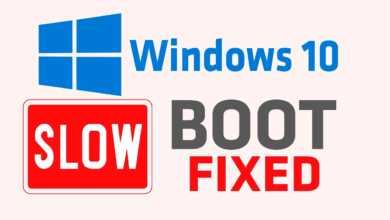The Top 5 Free AI Tools Every Storyteller Needs Right Now

In today’s digital-first world, storytelling has evolved beyond pen and paper. Whether you’re a novelist, screenwriter, blogger, or content creator, AI tools for storytelling can revolutionize how you write, plot, edit, and present your ideas. These tools don’t just speed up the writing process—they help you craft richer, more immersive narratives. Best of all, many of these powerful resources are completely free. If you’re a storyteller looking to sharpen your craft, here are the top 5 free AI tools you need right now—and exactly how to use them.
EXPLORE THE CONTENTS
1. ChatGPT – Your AI Brainstorming Partner
ChatGPT by OpenAI is arguably the most powerful and flexible AI writing assistant available today. It’s designed to understand natural language and generate human-like responses, making it an invaluable tool for storytellers at any stage of the creative process.
Whether you’re fleshing out character arcs, outlining scenes, or overcoming writer’s block, ChatGPT offers instant feedback and fresh ideas. Simply prompt it with a sentence like “Give me three possible endings for a dystopian short story” or “Describe a villain who hides in plain sight”, and it responds with detailed, creative suggestions.
ChatGPT can also simulate dialogue between characters, help generate plot twists, or rewrite a clunky paragraph in a more engaging tone. Its ability to adapt to different writing styles means you can use it to match your unique voice or experiment with new ones.
For storytellers working with deadlines, this AI can be a lifesaver. It enables you to produce high-quality content in less time, boosting your productivity without sacrificing originality. Plus, since the base version is free to use, it’s accessible to everyone—from aspiring authors to seasoned professionals.
2. Sudowrite – AI for Creative Writing Enhancements
If you’re looking for a tool tailored specifically for fiction, Sudowrite is a top contender. Built on advanced language models, Sudowrite offers AI-powered assistance that feels like having a creative co-author sitting beside you. It’s especially helpful for writers working on novels, short stories, or screenplays.
What makes Sudowrite stand out is its intuitive set of features aimed at improving creativity. Its “Describe” tool helps you paint vivid scenes by suggesting sensory-rich details. Want to describe a mystical forest or a war-torn city? Sudowrite will deliver immersive prose in seconds.
Another standout feature is the “Rewrite” function. It allows you to select any section of your text and choose from multiple rewriting options—tone it down, make it more descriptive, or even rewrite it as a poem. This enables storytellers to refine their voice and create a more polished final draft.
There’s also a “Brainstorm” mode that helps you come up with plot twists, character motivations, or even world-building ideas. If you’re stuck midway through your manuscript, Sudowrite acts as a springboard to help you regain momentum.
While the full version comes with a subscription, Sudowrite offers a free trial with plenty of features to test before committing. It’s a must-have AI tool for fiction writers serious about taking their stories to the next level.
3. Hemingway Editor – Mastering the Art of Clarity
Great storytelling isn’t just about imaginative plots and unique characters—it’s also about clear and compelling prose. That’s where Hemingway Editor comes in. Named after the iconic author known for his concise writing style, this free tool helps writers simplify their language for maximum impact.
Hemingway highlights overly complex sentences, excessive adverbs, and passive voice, all of which can bog down your narrative. It assigns a readability grade level, giving you real-time feedback on how easy your text is to understand. For writers aiming to connect with broader audiences, this is invaluable.
One of the best things about Hemingway Editor is its simplicity. You paste your text into the editor, and it color-codes your writing based on various issues: yellow for hard-to-read sentences, red for very hard-to-read ones, blue for adverbs, green for passive voice, and purple for complicated phrases.
This level of analysis helps you tighten your writing, making it punchier and more readable—qualities that keep readers engaged. Especially useful for storytellers who write for online audiences, Hemingway ensures your content is both accessible and enjoyable.
Plus, it’s entirely free to use via the web, making it a go-to tool for writers of all genres.
4. Canva – Visual Storytelling for the Modern Writer
In today’s digital landscape, storytelling isn’t confined to words alone. Visual storytelling plays a critical role, especially for writers sharing content on social media, websites, or digital books. That’s where Canva becomes an essential tool in your storytelling toolkit.
Canva is a free graphic design platform that allows storytellers to create eye-catching visuals without needing professional design skills. With thousands of templates, fonts, icons, and images, Canva makes it easy to design everything from book covers and character mood boards to marketing graphics and social media content.
Imagine you’re launching a short story online. Canva lets you design a compelling cover image, teaser posts, or infographics that highlight key themes or characters in your narrative. These visuals help you attract more readers and create a more immersive storytelling experience.
For self-published authors, Canva can be used to create professional-grade book covers and promotional materials. For screenwriters or content creators, it’s perfect for developing storyboards or pitch decks that visually communicate your ideas.
And with its drag-and-drop interface and free version packed with features, Canva is not only user-friendly but also cost-effective—ideal for writers on a budget.
5. Notion – The Ultimate AI-Powered Story Organizer
Behind every great story is great organization. From character sheets and plot outlines to world-building notes and revision schedules, Notion is the ultimate AI-powered workspace for storytellers who want to stay on top of their projects.
Notion blends writing, note-taking, and task management into one cohesive platform. You can create custom dashboards for each story, with tabs for characters, timelines, settings, and more. Its AI features also allow you to summarize long texts, generate ideas, and even rewrite sections of your notes for better clarity.
What sets Notion apart is its flexibility. It adapts to your workflow, whether you’re a pantser (writing by the seat of your pants) or a plotter (meticulous planner). Use it to create a visual storyboard, track word count goals, or collaborate with beta readers and editors.
The best part? Notion’s free plan offers more than enough features for individual storytellers. With its recent integration of Notion AI, you also get access to writing support similar to ChatGPT, directly within your notes. This makes the entire creative process smoother and more streamlined.
For long-form projects like novels, screenplays, or serialized fiction, Notion helps you stay focused, organized, and inspired from beginning to end.
Honorable Mentions: Bonus AI Tools Worth Exploring
While the above tools are among the top five, a few other free AI resources deserve a quick mention:
-
Grammarly – Excellent for polishing grammar, spelling, and style.
-
NovelAI (free trial) – Great for AI-assisted creative writing, especially in fantasy and sci-fi genres.
-
Rytr – Budget-friendly AI writing assistant useful for generating short-form content.
-
Pictory – Turns your story into short videos using AI, ideal for promoting fiction on social platforms.
These tools might not make the core list but are still worth experimenting with depending on your storytelling needs.
Final Thoughts: Harnessing AI Without Losing Your Voice
While AI storytelling tools are incredibly powerful, it’s essential to remember they are just that—tools. They can help you brainstorm faster, write cleaner, and organize smarter, but the soul of the story still comes from you. The emotion, the intention, the unique lens through which you view the world—these are irreplaceable.
However, when used correctly, AI can help you amplify your creativity instead of replacing it. It allows you to focus on storytelling while automating the more mechanical or repetitive aspects of writing. The key is to treat these tools as collaborators, not crutches.
Whether you’re just starting your writing journey or you’re a published author exploring new workflows, integrating these free AI tools into your creative process can give you a competitive edge—and maybe even make writing more fun again.







